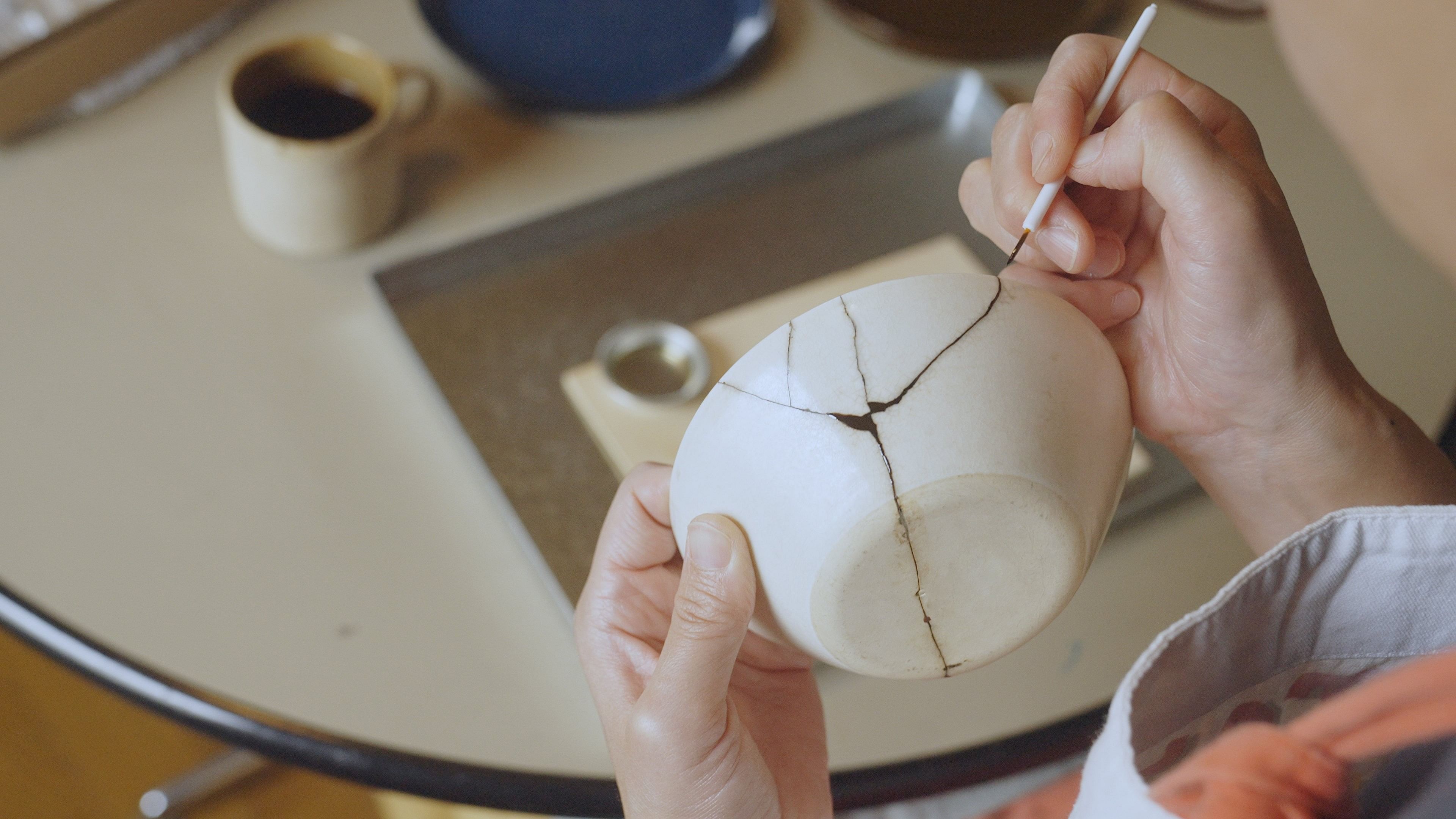
Woman repairing broken pottery at home using the art of Kintsugi.
iStock Photo
Humans are not made in laboratories with defined production standards and optimal production quality but evolve through various socio/personal/economic conditions. Everyone wades through distinct thresholds of pain, pleasure, success, and failure. Indeed, the varied episodes of rough storms in life’s narrative create rifts in the psyche.
Gradually, these rifts co-exist with our ideal self or social self. Indeed, humans have stigmatised the expression of this fractured self, and the fear of social or professional ostracization prevails throughout our lives. Physical deformities, sexual orientations, psychological dysfunctions, or deficiencies in workplace interpersonal dynamics may cause the rifts in our psyche.
Inner shadow and persona: According to the analytical psychology of Carl Jung, the shadow is a blind spot of the individual psyche wherein some of the psychological or emotional ruptures are consciously repressed to avoid social stigma (Humphrey, Caroline, 2015). Sigmund Freud, the founder of psychoanalysis, opined that these repressed ruptures/rifts are deeply buried in the psyche for fear of social ostracization. Still, they keep reverberating in the form of dreams or automatic thoughts (American Psychological Association, 2022). As a result of achieving social acceptance, individuals start wearing the social mask (persona) while ignoring their inner shadows. These shadows are the rifts that manifested through various episodes of life.
Social perfectionism and dysmorphophobia: Social Perfectionism is a belief that one should live as per the prescribed standards, which may include a person’s physical disposition. Consequently, people gradually start disowning their natural physical selves and try to manipulate their physical dispositions through alternative means.
A research article in Clinics in Dermatology infers that extreme obsession with the body and inordinate attempts to tune the body lead to dysmorphophobia. This may severely infect the quality of personal or workplace behaviours (Vashi Neelam, 2016). Besides, this phobia leads to low self-esteem, depression, anxiety, and anorexia nervosa (one of the eating disorders).
Although perfectionism is no longer a virtue but a mania or insanity, people set standards in behaviour, appearance, and etiquette in their social or workplace interactions. In India, many recent incidents (which have appeared in mass media) have depicted the harmful consequences of socially prescribed perfectionism in workplaces. Although self-oriented perfectionism leads to healthy interpersonal relations and strong emotional affiliations with the workplace, prescribed (social) or overt perfectionism sabotages the workplace ecosystem (Forbes, April 2022).
Kintsugi, a healing mechanism: Kintsugi is a Japanese art of mending broken pieces with golden joinery. The fragmented pottery/ceramics, after integration with the golden joinery, become visually more appealing, wherein the cracks seem more elegant. Later, this mechanism started gaining more importance in the realms of psychology. The fundamental principle of this mechanism is to cease repressing imperfections (caused by catastrophic episodes of pain, sorrow, and failures in life) and discourage socially prescribed perfectionism.
Besides, the mechanism emphasizes embracing the inner shadow, the progeny fed by life’s turbulences, as the fragmented psyche has its appealing beauty. The Buddhist monks believed that even the broken ceramics have their importance. Hence, they started mending the broken wares into beautiful potteries. The human shadows or the broken pieces of the repaired inner persona may not be perfect, but their imperfections have grace and beauty (Yuriko Saito, 2022).
Kintsugi at workplace: Workplaces across the globe have become extremely complex and loaded with the sophisticated nuances of perfectionism. Besides, perfectionism is not restricted to business processes but extends to an employee’s social/personal life cycle. The standards of perfectionism are enforced in terms of grooming, dining, interpersonal transactions, behavioural traits, and expression of self (manipulated self).
An article in Harward Business Review says that the best employers focus on assuring employees’ life satisfaction rather than clinging to job satisfaction. Some progressive organizations like German Cooperative Financial Group, Germany, Danish Design Centre, Copenhagen and others have infused the spirit of Kintsugi into their cultural practices and witnessed an evident transformation in the quality of workplace interactions while promoting the culture of mutual trust and resilience.
The leaders or senior HR executives can transform the workplace ecosystem by implementing Kintsugi at various levels of employee interaction. Besides, the leaders must be willing to break free from the shells of conventional practices and introduce some of the transformational cultural elements. These transformational practices not only help in building a progressive work culture but also help employees to heal their fractured inner self:
The failures or mistakes of employees are normalised, and they are assured psychological safety when discussing their imperfections.
The culture of celebrating success and not regretting failure through employees’ journey at the workplace.
Building a culture of resilience wherein employees are mentored to bounce back from their failure.
Empowering people to share their Imperfections or vulnerabilities without any fear of execution.
Emphasizing the principle “it’s fine to be imperfect” and eradicating the fear of committing mistakes.
Avoiding the advocacy of socially prescribed perfectionism on grooming or physical disposition.